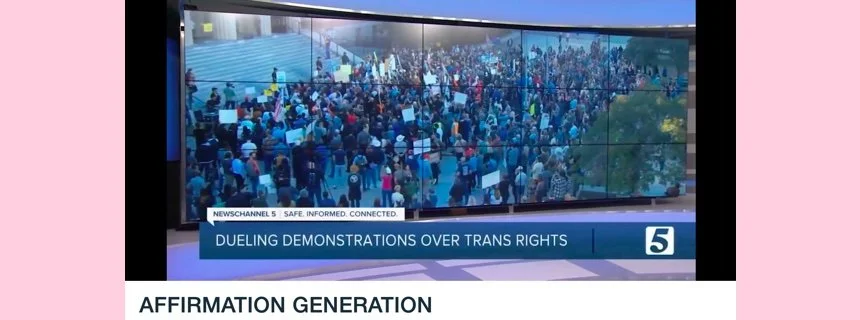News Commentary
WPATH (World Professional Association for Transgender Health) is an organization that creates “standards of care” for transgender individuals. They are requesting public comments. There were many issues with the wording of this document (we hoped to post a write-up later). We chose to focus our comments on their lack of acknowledgment that LGB people may experience transient gender dysphoria while they are children, teens, or young adults. They can be found below:
Childhood GD
Gender Health Query submitted comments as an organization expressing our concerns under the adolescent section. We request WPATH clearly state gay, lesbian, and bisexual youth experience transient childhood (and increasingly transient teen/YA onset) gender dysphoria. The growing numbers of LGB young people expressing transition regret or telling stories of near misses with hormone use or underage surgeries before they desisted represent a significant human rights issue for LGB populations. The avoidance of discussion about GD and gay and lesbian identity throughout these sections is odd, given the research on desistance and adult gay and lesbian identity is very robust. A review of the data from these studies, Drummond et al (2008), Wallien and Cohen-Kettenis (2008), Singh (2012) and Steensma et al (2013), demonstrate a 67% desistance rate average for DSM-diagnosis-positive youth. Many of these desisters grew up to be same-sex attracted, and not medicalizing them at a young age was critical to their human rights and natural development.
Why is WPATH engaging in this type of avoidance of discussion of gay and lesbian identity? We would like to see evidence of your concern about these youths in these guidelines. The number of detrans same-sex attracted youth appears to be growing.
Thank you for your time and request for feedback.
Adolescent GD
As is the case with the child section, WPATH avoids mentioning the risk of pediatric medical transition to gay, lesbian, and bisexual youth who may experience intense but transient gender dysphoria while growing up into adulthood. The risks of pediatric transition to them are not theoretical. We are indeed seeing disturbing numbers of damaged young people who come to realize they were just LGB when their brains mature into adulthood, and they realize that transition was a mistake. This is the same thing that happened in Thailand when gay rights activists were receiving complaints from many very young gay men with medical transition regret:
https://www.telegraph.co.uk/expat/expatnews/6669101/Thailand-tightens-sex-change-laws.html
We expect worse consequences here in the US given youth are being medicalized at even younger ages than in Thailand and on a much larger scale. This is an easily predictable outcome given prior research on desistance and adult gay and lesbian identity:
Drummond et al (2008)
Wallien and Cohen-Kettenis (2008)
Singh (2012)
Steensma et al (2013)
The current affirmative model is essentially designed to maximize persistence and medicalization and minimize youth going through the developmental process and struggles of growing into an adult gay or lesbian identity. Also, bisexual females now are particularly experiencing an explosion in trans identification while dealing with the difficulties of puberty. There isn't always clear line between trans and LGB in young people. This should be clearly stated in WPATH documents if you want to be seen as caring about these young people and the implications pediatric transition has for LGB populations. For example, you should admit homophobic bullying increases the likelihood of trans-identification, strongly indicating GD is not only an innate identity but influenced by social forces, and bullying and hatred of gay and lesbian people specifically:
https://www.docdroid.net/kWO8DNY/the-influence-of-peers-during-adolescence-does-homophobic-name-calling-by-peers-change-gender-identity-pdf
There is a growing number of homosexual and bisexual people who are aware that gender clinics are damaging LGB youth. We believe that WPATH's avoidance of clearly stating that pre-gay and lesbian children and LGB youth may experience gender dysphoria that may resolve with time is intentional, so these potential desister/detrans youths do not become roadblocks to pediatric medicalization. This has severe consequences for LGB communities that are very small and are now coping with traumatized youth with irrevocably altered bodies and who have no resources. Please state that LGB youth specifically experience gender dysphoria and that this is also an LGB human rights issue regarding proper mental health care and the right not to be over-medicalized as a cognitively immature young person by gender clinicians such as yourselves.
Thank you for your time




